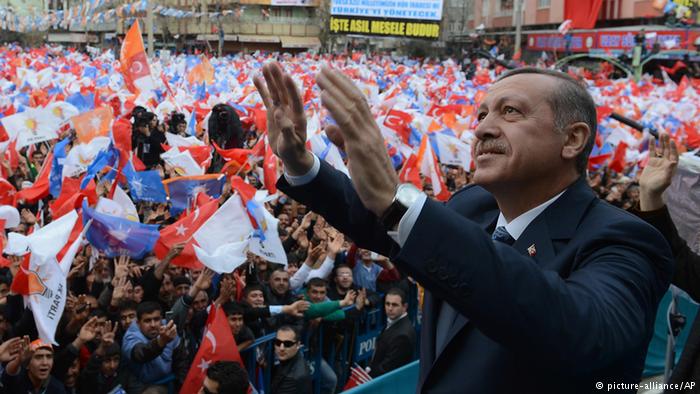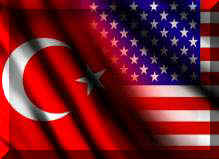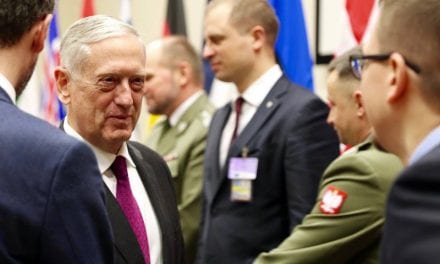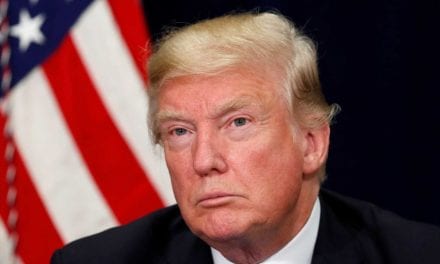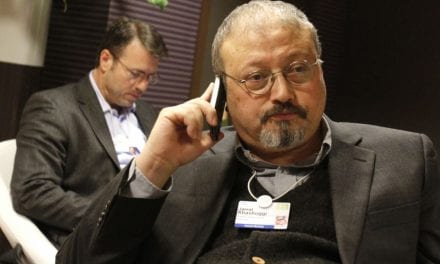Leading experts discuss how the results will affect Erdogan’s foreign policy, the political potency of ascendant ultranationalists, and the opposition’s chances of staying united.
By Washington Institute
On June 25, Soner Cagaptay, Lisel Hintz, Nick Danforth, and Rich Outzen addressed a Policy Forum at The Washington Institute. Cagaptay is the Institute’s Beyer Family Fellow and director of its Turkish Research Program. Hintz is an assistant professor at the John Hopkins School of Advanced International Studies. Danforth is a senior analyst with the Bipartisan Policy Center’s National Security Project. Outzen is a senior U.S. Army advisor and a member of the State Department Policy Planning Staff. The following is a rapporteur’s summary of their remarks.
SONER CAGAPTAY
If not for Devlet Bahceli’s Nationalist Action Party (MHP), President Recep Tayyip Erdogan and his Justice and Development Party (AKP) would not have won Turkey’s June 24 parliamentary and presidential elections. Erdogan crossed the 50 percent threshold and won the presidential vote only because Bahceli did not field a candidate in the race, instead asking his base to vote for Erdogan. And in the parliamentary race, the AKP-MHP coalition secured a legislative majority.
Thus, while the AKP won the election, the ultranationalist MHP may be the biggest winner. Many AKP voters seemed to migrate to the MHP, which increased its seat tally in parliament. More important, Erdogan is now indebted to the MHP despite gaining more power.
One result of this shift is that Turkey’s internal debate on the Kurdish issue will become more difficult. The government will likely adopt tougher policies toward both the People’s Defense Units (YPG) in Syria and their Turkish mother organization, the Kurdistan Workers Party (PKK). This includes harsher criticism of the U.S. partnership with the YPG.
Bahceli is also likely to become a more vocal critic of Moscow’s influence in Turkish foreign policy, since his party carries a strong anti-Russian animus. This would complicate Erdogan’s efforts to maintain a modus vivendi with the Kremlin on various issues.
As for opposition factions, Muharrem Ince of the Republican People’s Party (CHP) performed well in the presidential election, winning more than 30 percent of the vote—the most for a left-leaning candidate since 1991. Ince is relatable and, like Erdogan, is able to pull off the image of “a man from the other side of the tracks.” IYI (Good) Party leader Meral Aksener also did well, especially given that she was denied access to the media, 90 percent of which is controlled by pro-Erdogan businesses.
The pro-Kurdish Peoples’ Democratic Party (HDP) lost some votes in the predominantly Kurdish provinces of eastern Turkey, yet it was still able to cross the 10 percent threshold needed to enter parliament. This was largely thanks to liberal ethnic Turks in western provinces who wanted the party to make the legislature for tactical reasons.
In the big picture, the results show that Erdogan’s populist rule has deeply unsettled and polarized the country, creating two echo chambers: one populated by those who adore him, and the other by those who detest him. These two groups live in different realities now—they do not want to understand, acknowledge, or sympathize with each other. Voters are no longer moving from the pro-Erdogan camp to the anti-Erdogan camp or vice versa, but simply migrating within their echo chambers. Erdogan’s winning margin of 52 percent was starkly similar to the results of his 2017 constitutional referendum.
LISEL HINTZ
These elections were neither fair nor free. The entire process was held under a protracted state of emergency, vastly limiting opposition freedoms. In addition to slanted media coverage, one opposition candidate, HDP leader Selahattin Demirtas, was kept in jail throughout the campaign, and some ballot boxes were deliberately moved to prevent certain voters from accessing them. At this point, Erdogan will still control much of Turkish public life even if he lifts the state of emergency.
Even so, he remains a pragmatic leader and has partnered with numerous groups in the past. When these partners step over the line (e.g., the Gulenists) or otherwise threaten to erode his power in any way, he is quick to retaliate, and relations sour rapidly. This time Erdogan has allied himself with Bahceli.
The MHP voter base is generally nationalist, conservative, and pious, so the party will bring all of these traits to the new government. Political space on the Kurdish issue will stay shut, and representatives will support Turkish/Turkic identity in foreign policy. They will also be more wary of Russia and the United States, questioning Ankara’s relations with both countries and articulating greater disapproval of the U.S.-YPG alliance in Syria.
On the other side of the aisle, Ince is a pugnacious and charismatic leader who has mobilized many people and provided a sense of hope. He visited all other opposition leaders leading up to the elections, drawing attention to the jailed Demirtas and symbolically donating 500 liras to each candidate’s campaign. It will be worthwhile to see what he does to keep his momentum.
NICK DANFORTH
Erdogan will keep being Erdogan, maybe even more so now that the elections are over. He comes out of this victory knowing that his combative approach has been vindicated at home and abroad. He is also perpetuating a sense of victimhood in his rhetoric—at home, he claims he is fighting entrenched Turkish elites; abroad, he warns that those who oppose him can return any minute to undo the gains he has made.
To be sure, Erdogan wants Turkey to remain a democracy, but only so far as it is compatible with him staying in power. He has maintained the structure of democracy, but the question is how long this shaky arrangement can last. The answer may depend on how long the opposition feels it can contest his rule fairly before resorting to more confrontational means. It was encouraging that opposition parties showed solidarity with each other during the elections, but discouraging that they still lost after coming together.
Going forward, the AKP-MHP alliance gives the nationalist constituency a strong voice in government. Believing their agenda has been proven right at the polls, Erdogan and his new allies will become more strident toward the Kurds, the Gulenist movement, and the West. In particular, Erdogan wants to solve the Kurdish issue by coming at it from a position of strength. And while he desires better relations with the West, he believes they need to be reestablished on his terms. Put another way, the West has an opportunity for a fresh start with Turkey, but only by accepting that Erdogan is here to stay.
On foreign policy, the new Turkish government will likely reach for low-hanging fruit at first—namely, alliances with relatively uncomplicated partners like Venezuela or Serbia, whose diplomatic approval can give Ankara a sense of pride and legitimacy. As for relations with Moscow, no one in Turkey wants Russian hegemony to replace American hegemony, so Washington should not be so worried about Turkey going east. Yet now more than ever, Turkey may be going it alone.
RICH OUTZEN
Evaluations of this election cycle should not discount the various causes for optimism. Turkey is a nationalist realpolitik society that generally does not trust outsiders, whether allies or enemies. The Turks will remain a difficult partner for the foreseeable future, but also a key ally for the United States. From the American political perspective, Erdogan is a problematic leader whose troubling approach to democratic norms cannot be ignored. Yet for the time being, it is a good thing that these elections will go down as a reasonable exercise of democracy in a region where that is a rarity.
When viewed in this light, the surge in MHP votes should not come as a surprise—rather, it was a reciprocal nationalist response to the anxieties of the Turkish people. The country’s strategic culture is a four-way balancing mechanism between the West, Eurasia, the Islamic world, and cultural autarchy. Whenever a sense of threat emerges from one or more of these sides, the republic shifts its balance toward the others. Recently, that sense of threat has been coming from Syria and the West.
Another reason to remain optimistic is because the post-election environment will inherently be more flexible for Erdogan and the rest of Turkey’s political spectrum. The AKP is well organized and is seen as an organization that can run the state. Opposition parties are not big enough to beat the AKP head to head, but forming a coalition has given them a chance to show that they would be large and effective enough to handle the burdens of governance if they win future elections. Moreover, they were impressive in mobilizing civil society to check on polling stations and ballot boxes, which helped dampen fears of voter fraud somewhat.
Erdogan now has to bargain—Western observers may not like that he will be bargaining mostly with the ultranationalist MHP, but it is still a positive outcome overall. Polling data indicates that he no longer has a blank check to pursue any policy or a rising wave of popular support; his vote tallies were particularly slim among young voters. Likewise, the AKP is becoming increasingly constrained and will need to cooperate and negotiate with partners on the other side of the aisle.
The bad news is that Turkey will continue complicating the very delicate and difficult things Washington is trying to do in Iraq and Syria. Many tough bilateral issues still need to be resolved—Syrian border security, Turkey’s detention of American citizens, concerns over its perpetual state of emergency, its purchase of Russian S-400 missiles—and none of these matters has been made easier by the election results. Yet Ankara was never going to be an easy partner to deal with even if Ince had won. Turkish leaders across the political spectrum do not want the United States to dictate what they do in their own neighborhood.
At the same time, the recent agreement on a Manbij roadmap was a good sign that the two partners can overcome tense differences and cooperate closely on nettlesome regional issues. As the Islamic State is defeated with YPG assistance and the threat of a contiguous Kurdish corridor along Turkey’s southern border ceases to exist, the expectation is that Ankara will slowly rein in its harsh rhetoric toward the West.

